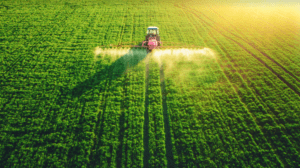Agriculture is unique in numerous ways. So many people depend on so few, each farm feeds 166 people on average. Farmers are scientists. They pay close attention to the weather, to the health of their soils and importantly, genetics. The genetical make up of crops and livestock provide yield advantages, pathogen resistance, weather resiliency and more. It can take years of research, hundreds of trials, and loads of money. Patents and other intellectual property protections can provide a layer of security, to a point. Nations like China don’t respect these laws and will pillage our intellectual crown jewels whenever they can.
In our last blog, we discussed how financial gain is the primary motivation of cybercriminals, the theft of our agricultural trade secrets is the leading incentive for our nation state adversaries, particularly China.
China uses a myriad of techniques, many of which are an extension of their Thousand Talents Plan in which they use American academic and research facilities as cover for their theft. Approximately 1/3 of all international students in America are Chinese citizens.
AgWeb quotes Col. (Ret.) John Mills, a national security professional and former Director of Cybersecurity Policy, Strategy, and International Affairs at the Department of Defense. “For so long, U.S. counterintelligence has been focused on Russia, yet China presents a threat many orders of magnitude greater. China is intent on cataloguing seed and DNA on a vast scale, and they’ve spent at least 10 years vacuuming up every piece of tech from every sector in the U.S. You can be absolutely certain: Agriculture is right up there at the top and this is happening right now.”
A few examples are:
- Weiqiang Zhang stole samples worth $75mm of genetic research into rice
- Mo Hailong was arrested as he tried to board a plane while smuggling corn (disguised as popcorn) with superior genetic traits (read the book).
- Haitao Xiang stole a critical nutrient related algorithm from Monsanto
We’ll discuss in later posts what an agricultural/food professional can do to make themselves a less attractive target. Importantly, it mostly boils down to See Something, Say Something. If it looks odd or out of place, contact the FBI or visit IC3 and report it.
We encourage your questions, comments, and thoughts. If you need a speaker, expert panel for an event, or custom articles for your newsletters around these topics, contact us at info@cyberag.org.
For more information, visit our website at www.cyberag.org.
#CyberAg









